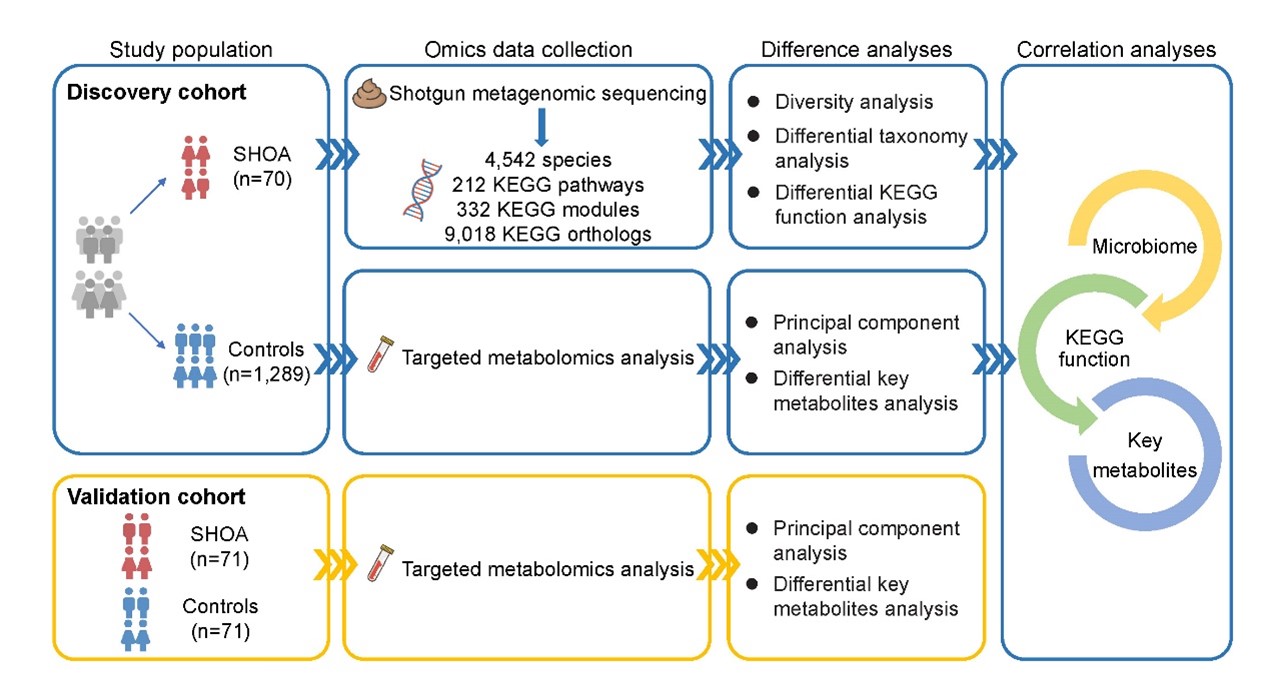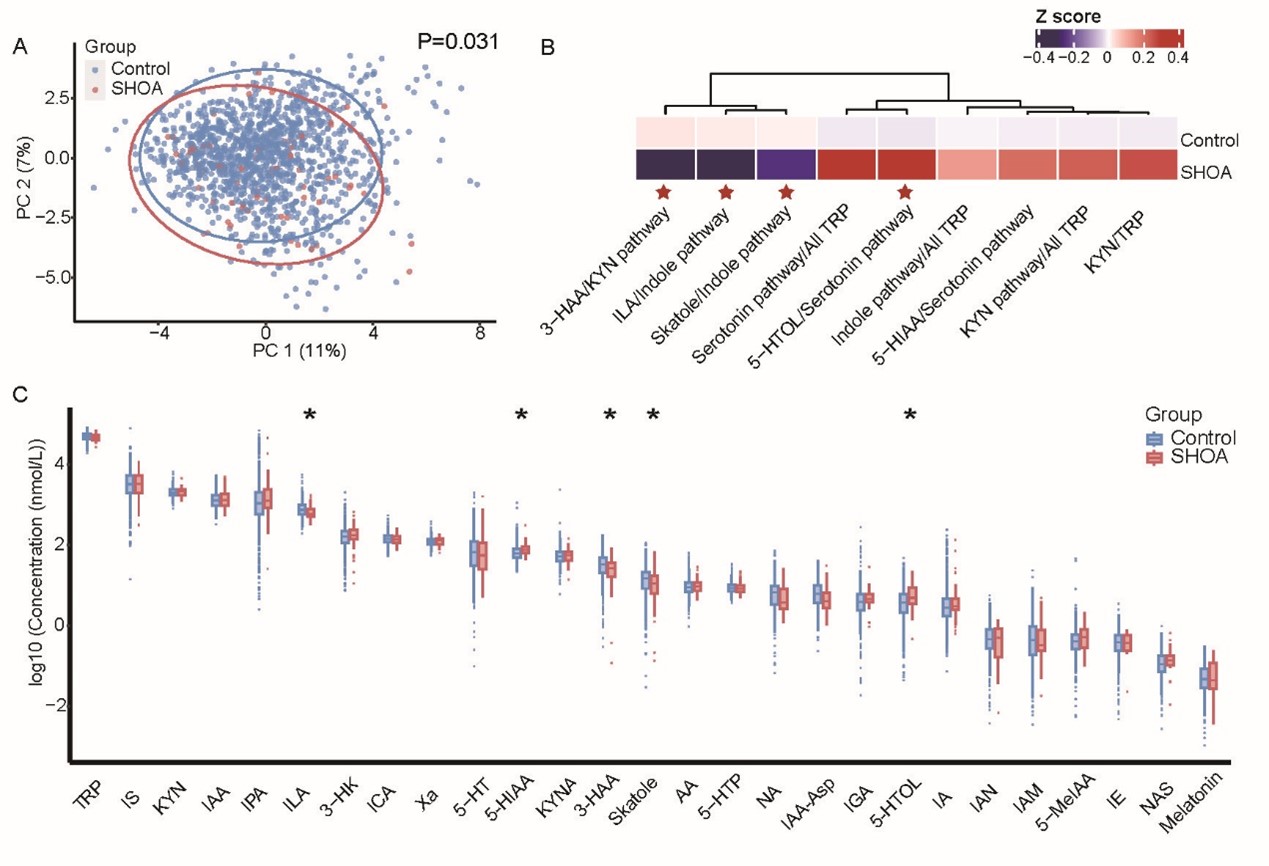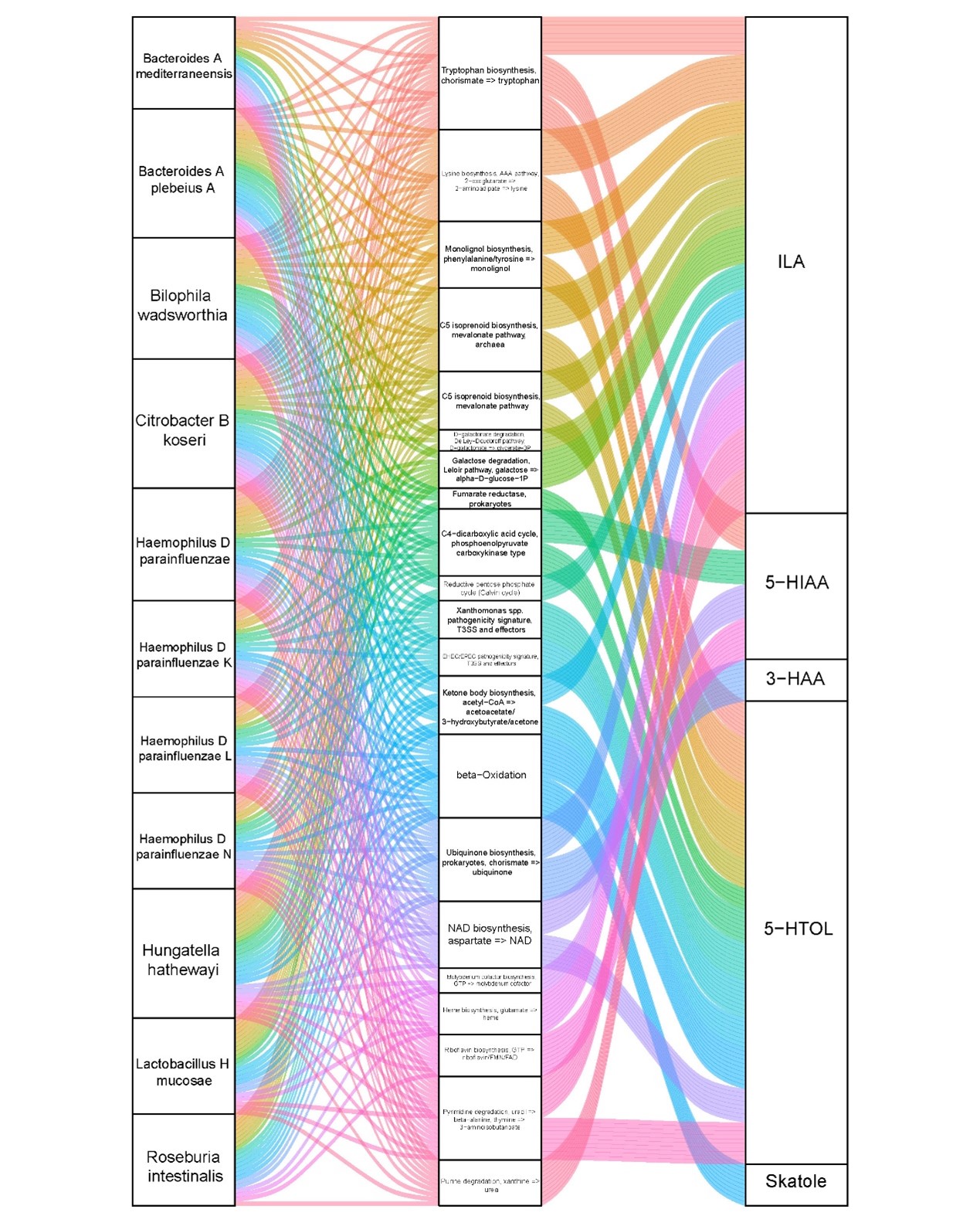Session Information
Date: Tuesday, November 14, 2023
Title: Abstracts: Osteoarthritis II: Novel Insights from Observational Studies
Session Type: Abstract Session
Session Time: 2:00PM-3:30PM
Background/Purpose: Since gut microbiome dysbiosis can cause inflammatory disorders by affecting host metabolism, we postulate that the gut microbiome and related metabolites could play a role in the pathogenesis of hand osteoarthritis. We characterised gut microbiome-related metabolites in people with symptomatic hand OA (SHOA) in two independent cohorts.
Methods: Using data collected from a large-sample community-based observational study (discovery cohort) (n=1,359), the Xiangya OA (XO) Study, we first performed shotgun metagenomic sequencing of stool samples for gut microbial function. We then performed targeted metabolomics analysis of plasma samples for metabolites related to altered microbial function in SHOA and compared the metabolites between participants with and those without SHOA. We also applied a multi-omics analysis approach to examine the associations between SHOA-related microbial function and SHOA-related plasma metabolites. Finally, we then replicated the findings from the XO Study among 71 SHOA patients and 71 age (±1 year), sex and BMI (±2 kg/m2) matched controls (validation cohort) (Figure 1).
Results: In the discovery cohort, compared with those without SHOA (n=70), participants with SHOA had significantly altered microbial functions related to tryptophan metabolism. Then we measured the plasma tryptophan metabolites and found that participants with SHOA had higher levels of 5-hydroxytryptophol and 5-hydroxyindoleacetic acid, but lower levels of indole-3-lactic acid (ILA), 3-hydroxyanthranilic acid and skatole (Figure 2). The multivariable-adjusted odd ratios of SHOA per one log10 unit increase for 5-HIAA, 5-HTOL, ILA, skatole, and 3-HAA were 8.97 (95% CI: 2.37 to 33.98), 3.44 (95% CI: 1.44 to 8.18), 0.19 (95% CI: 0.04 to 0.99), 0.51 (95% CI: 0.28 to 0.90) and 0.36 (95% CI: 0.19 to 0.70), respectively. Moreover, the multi-omics analysis suggested that the lower level of ILA in SHOA was related to the microbial function of tryptophan biosynthesis, which was further correlated with the microbiome species Bacteroides A mediterraneensis (Figure 3). Finally, we verified the associations between plasma tryptophan metabolites and SHOA in the validation cohort. Consistent with the findings in the discovery cohort, we observed a lower level of the ILA in the SHOA group compared with controls, with the multivariable adjusted ORs of SHOA per one log10 unit increase for ILA being 0.03 (95% CI: 0.002 to 0.46).
Conclusion: Alterations of the microbial function of tryptophan biosynthesis and tryptophan metabolites, especially lower levels of ILA, are associated with SHOA. Our novel findings suggest potential pathways and targets for further treatment of SHOA.
To cite this abstract in AMA style:
Wei J, Yang Z, Li J, Zhang Y, Zhang W, Doherty M, Yang T, Yang Y, Li H, Wang Y, Wu Z, Li C, Lei G, Zeng C. Association Between Gut Microbiome-related Metabolites and Symptomatic Hand Osteoarthritis in Two Independent Cohorts [abstract]. Arthritis Rheumatol. 2023; 75 (suppl 9). https://acrabstracts.org/abstract/association-between-gut-microbiome-related-metabolites-and-symptomatic-hand-osteoarthritis-in-two-independent-cohorts/. Accessed .« Back to ACR Convergence 2023
ACR Meeting Abstracts - https://acrabstracts.org/abstract/association-between-gut-microbiome-related-metabolites-and-symptomatic-hand-osteoarthritis-in-two-independent-cohorts/



